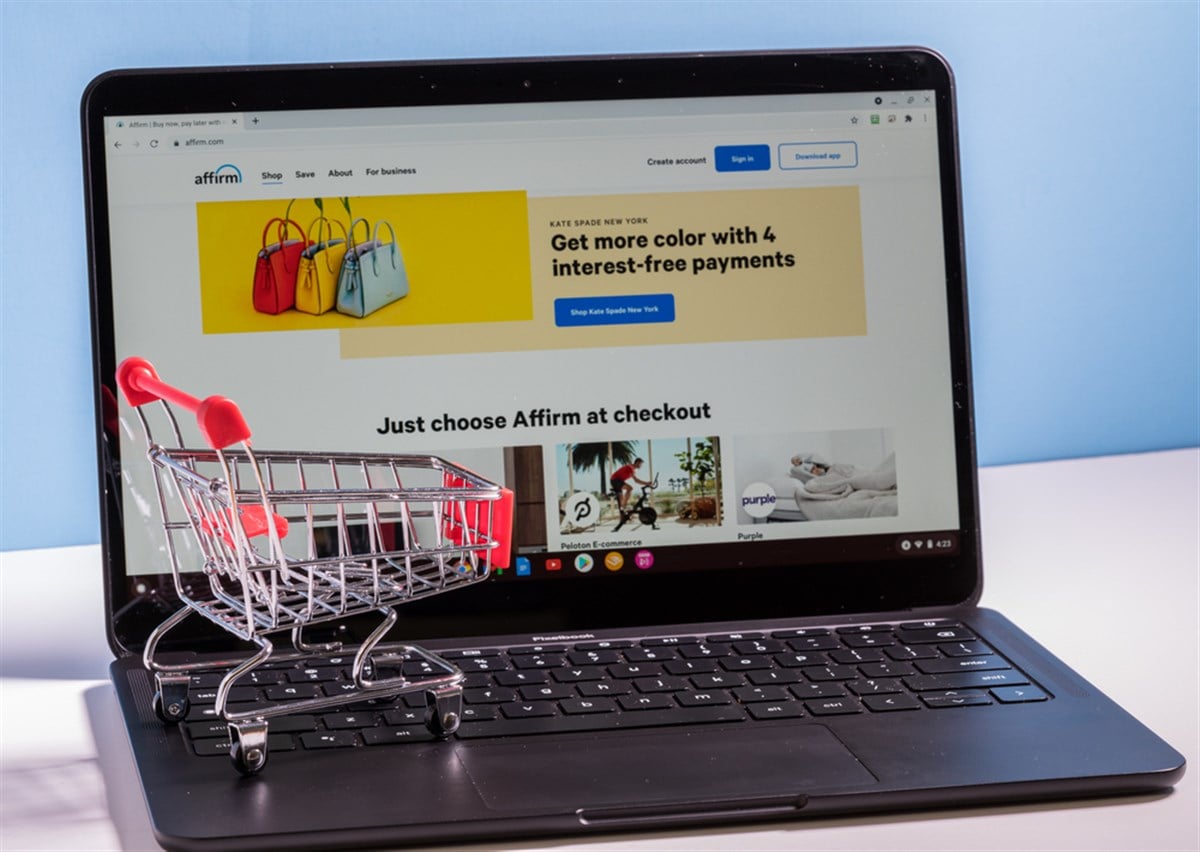
Affirm (NASDAQ: AFRM) has seen wild fluctuations in its stock price over the past three years. Shares peaked at nearly $169 in November 2021 but are down 80% from that level today. However, shares are up 82% in the past 52 weeks.
Investors might recognize the fintech company as a payment option allowed when making online purchases. Affirm often pops up when checking out online to pay off a purchase in installments, subject to a credit check.
Let’s dive into the company’s annual financial statement to understand better what it does. We'll then examine recent news and the firm's financial results and close by providing some outlook on the company.
Breaking Down Affirms Operations and New Relationship with Major Mag-7 Firm
Affirm operates as one reportable segment. However, it has two main customer types: merchants and consumers. The company brings in revenue from merchants by charging them a fee when a transaction is made using Affirm’s buy now pay later (BNPL) payment option. The fee is usually higher if the interest charges on the payment plan are lower.
When customers make purchases using Affirm's payment option, it cuts into a company’s margins on that sale. However, merchants still have a big incentive to use Affirm as it helps increase overall sales. Customers who may be afraid to make big purchases at one time are more likely to do so if Affirm is an option.
The company generates revenue from consumers based on interest charges for its payment plan. It does not charge late payment fees. It also has a marketplace app where customers can buy directly from merchants. In the fiscal year 2023, 20% of Affirm's transactions occurred in the app. Lastly, the Affirm Card allows customers to convert debit purchases into installment loans.
A big source for potential growth is Affirm's partnership with Apple (NASDAQ:AAPL). Its BNPL plan will be available as an option in Apple Pay in late 2024. However, investors will have to wait to see the effect. Affirm says it doesn’t see a material impact on revenues until 2026.
This is because the firm will be rolling out the feature to Apple users slowly to manage risk. It wants to fix issues that might occur while the use of the feature is relatively small. This is so that those issues don’t become the massive problems that they might if everyone had access initially.
However, this isn’t an exclusive agreement. Customers will also be able to use BNPL options through Citigroup (NYSE:C), Synchrony Financial (NYSE:SYF), and Fiserv (NYSE:FI).
Revenues are Strong and Profitably May Be Turning the Corner
The company has grown revenues solidly since going public in 2021. Revenues grew 51% from a year ago in fiscal Q3 2024. Operating margin recovered from -80% in March 2023 to -37% in March 2024.
Although revenue growth is strong, net income is still deeply negative. The company's losses neared half a billion dollars in the 12-month period ending in fiscal Q3. However, in its last earnings release, the firm articulated a timeline for when it hopes to achieve operating profitability on a non-adjusted basis.
Affirm posted fiscal Q4 2024 earnings that blew estimates out of the water on Aug. 28. Its loss of $0.14 per share was a massive decrease from the fiscal Q3 loss of $0.43. Revenue grew 14% from Q3 and 38% from the previous year’s quarter. Revenue came in 9% above expectations.
The company expects revenues to decrease slightly from fiscal Q4 next quarter to $655 million, but that number is still $30 million above expectations. Shares rose close to 17% in after-hours trading. The company expects to achieve positive non-adjusted operating profit by the end of fiscal 2025.
Affirm Is Silencing the Doubters
Affirm's strong revenue growth is impressive. This is especially true amid current macroeconomic weakness and high interest rates, which are headwinds to the lending company. The company's results in the last two quarters have cast doubt on claims of a flawed business model, which arose from its absurdly negative margins in 2023.
Its continually rising Transactions per Active User are a good sign. Payments from these customers are higher margin and show that existing customers like the product and are using it more. The Fed potentially entering an interest rate cut regime would provide a tailwind, and the company could really take off during a period of lower rates.













